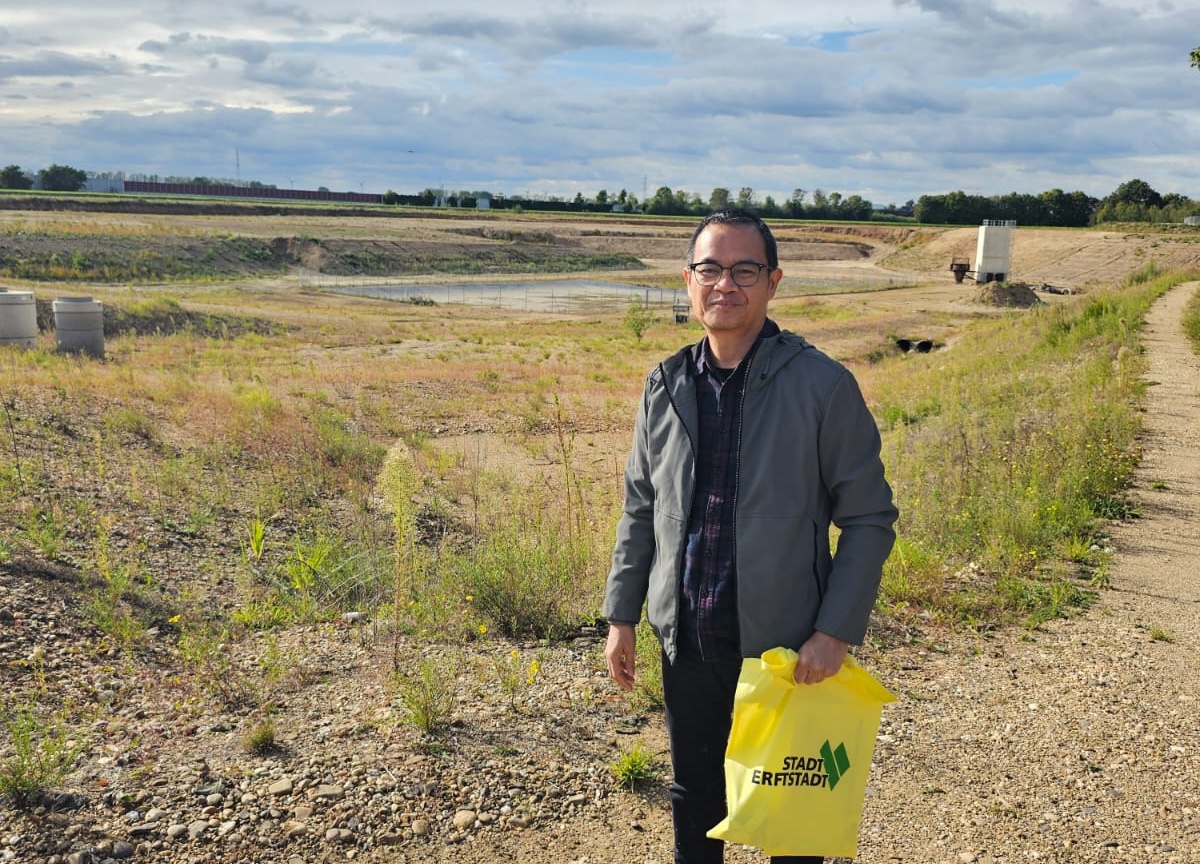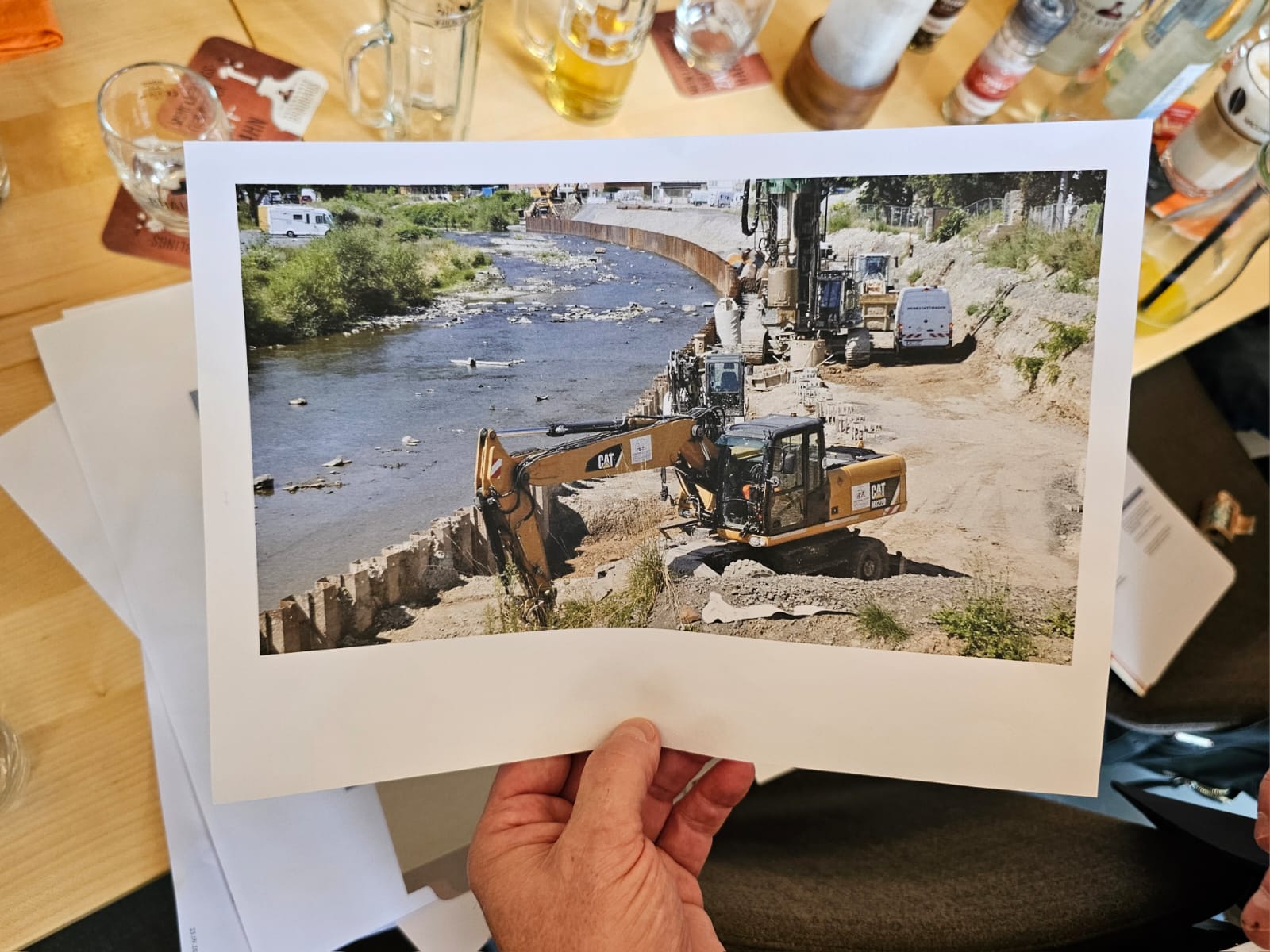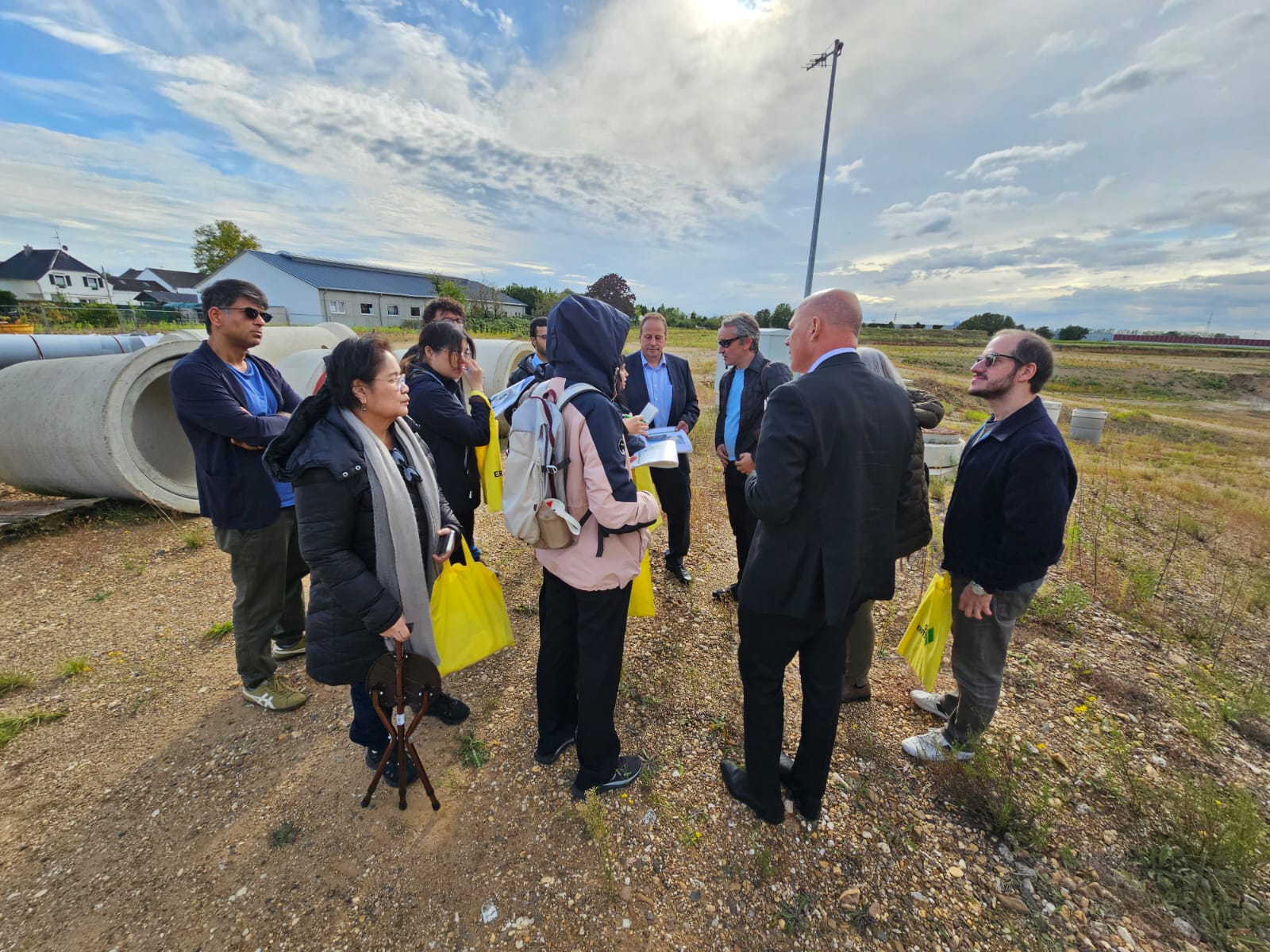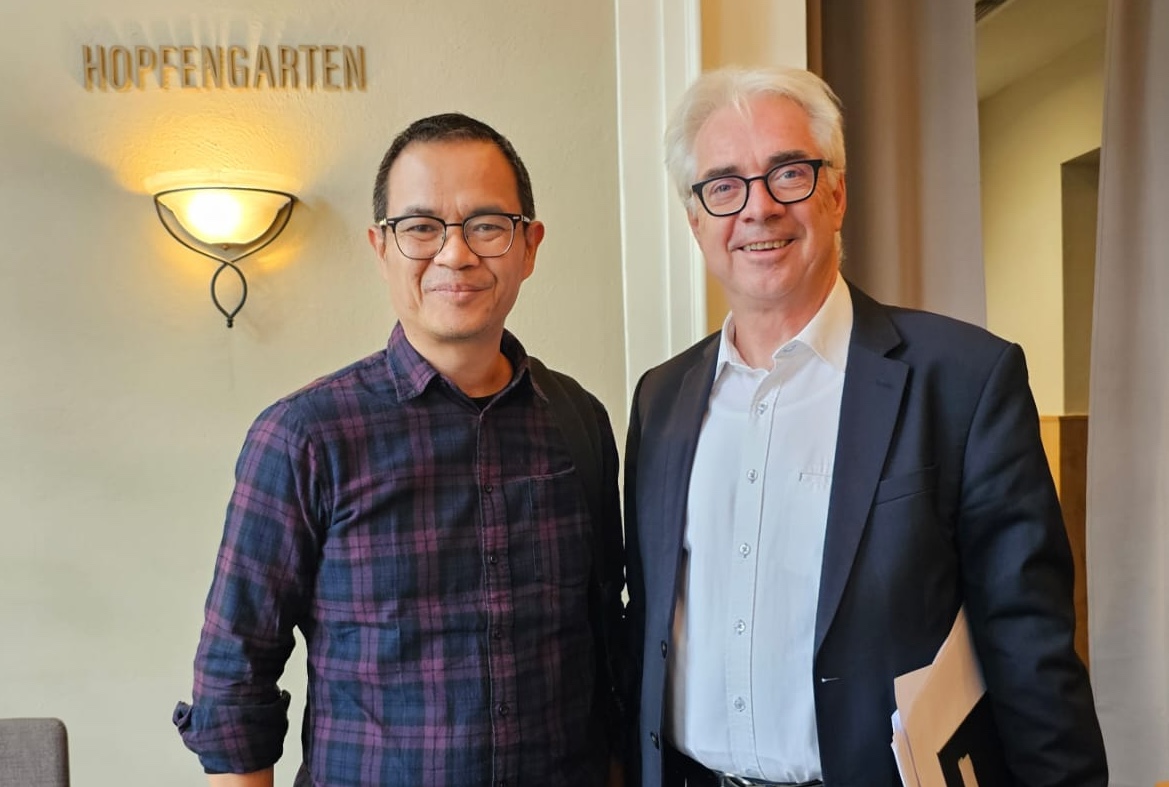More From News
UIII Builds a Bridge to Costa Rica
February 26, 2026
UIII Strengthens Its Academic Resources with Read Japan Project
February 25, 2026
September 29, 2025
By Dadi Darmadi | Photo: Sonny Mumbunan

In July 2021, catastrophic floods devastated western Germany, claiming lives and destroying infrastructure in one of Europe’s deadliest natural disasters in decades. Dr. Sonny Mumbunan, head of the Master of Public Policy in Climate Change program at Universitas Islam Internasional Indonesia (UIII), was invited by the German government to study recovery efforts in the Ahrtal (Ahr Valley) region which spans two federal states: Bad Neuenahr-Ahrweiler in Rhineland-Palatinate and Erftstadt in North Rhine-Westphalia.
His visit offered critical insights into climate-resilient infrastructure, disaster funding, and energy transition, aligning with his work at UIII training students to tackle global climate challenges.
 Devastation in Bad Neuenahr-Ahrweiler
Devastation in Bad Neuenahr-Ahrweiler
In Bad Neuenahr-Ahrweiler, the Ahr River overflowed with unprecedented force, destroying homes, businesses, and infrastructure. Hundreds of lives were lost across the region. Caused by extreme rainfall linked to climate change, the floods revealed vulnerabilities that even developed nations are now experiencing first hand.
Engaging with German policymakers and planners, Dr. Mumbunan observed that the €30 billion recovery effort, funded by federal, state, and regional banks, emphasizes climate resilience. Rebuilt infrastructure now incorporates climate risk assessments to withstand future extreme weather. “Germany’s approach integrates climate risk adaptation into recovery and infrastructure planning in the aftermath of the disaster,” Dr. Mumbunan noted.
 Erftstadt’s Compounded Crisis
Erftstadt’s Compounded Crisis
In Erftstadt, floodwaters breached river defenses and surged into a gravel pit from past mining, creating a sinkhole that swallowed homes, cars, and livelihoods. The floods and landslides damaged around 2,500 homes, with €98 million allocated for recovery. Dr. Mumbunan highlighted the challenge of addressing such complex disasters, where climate change induced disaster events exploit human-made vulnerabilities, and where development planning and financing have yet to fully integrate to better cope with these events.
Climate Policy, Funding, and Energy Transition
Dr. Mumbunan’s discussions with German stakeholders focused on adaptive infrastructure, innovative funding, and energy transition to cope with future climate physical and transition risks. Public-private financial models, including regional banks, have driven recovery, while renewable energy investments support transitions to sustainable development in mining areas prone to climate-related disasters such as flood. These strategies align with the policy solutions discusses at the MPP Program at UIII where Dr. Mumbunan teaches.
 Lessons for Indonesia and Beyond
Lessons for Indonesia and Beyond
Germany’s response serves as a model for Global South countries like Indonesia. Although there are clear differences between the two nations, both face a growing frequency of climate-driven disasters. In each country, disaster response is decided, funded, and implemented at various levels of government. Dr. Mumbunan emphasized the importance of proactive planning, diverse funding sources, and collaboration among stakeholders. “These floods are a global wake-up call and are likely to happen more often in our warming climate,” he said, advocating for integrated solutions to build more resilient futures.
Through his visit, Dr. Mumbunan offers valuable insights to UIII’s academic community, preparing future leaders to tackle climate-induced disasters. Germany’s experience highlights that true resilience involves more than recovery—it requires sustainable, climate-adaptive development planning.
Climate-induced disasters were the central theme of the capstone project by first-year graduates of the MPP in Climate Change at UIII, conducted in partnership with the United Nations Population Fund (UNFPA). Their capstone report, titled “Dealing with Double Disasters,” outlines policy, programmatic, and capacity-building interventions to address the effects of climate-induced disasters on gender-based violence, child marriage, and access to sexual and reproductive health services in Indonesia. The report underscores how climate change is deeply interconnected with broader societal issues. This MPP UIII capstone report is the first in Indonesia to connect climate-related disasters with gender-based violence and sexual health services, and among the first of its kind globally.
Universitas Islam Internasional Indonesia